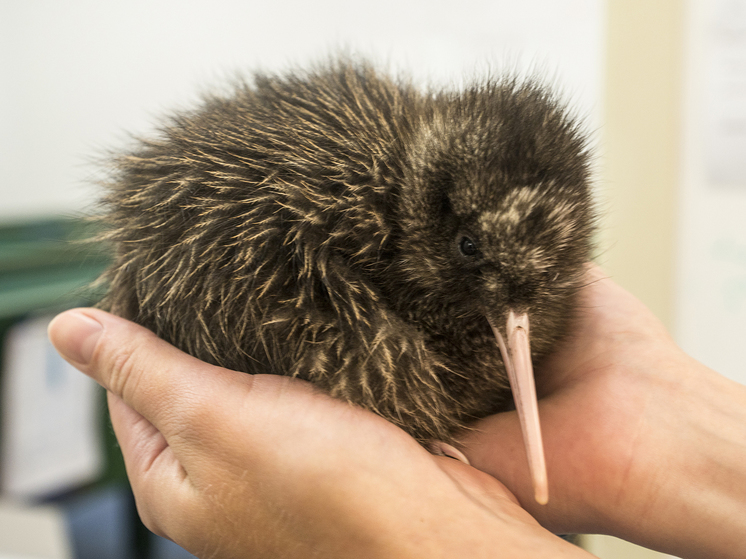«They're ridiculously cute»
Kiwi chicks born in the wild are the first in Wellington in a century. New Zealand's national symbol is also one of the most endangered birds, and conservationists believe the kiwi has not been in the New Zealand capital for generations.

Two kiwi chicks have been born in the wild outside Wellington for the first time in more than 100 years, a year after the national bird was reintroduced to the New Zealand capital.< /p>
According to The Guardian, the furry and flightless kiwi is one of New Zealand's most vulnerable birds, and conservationists believe the species has not been seen in the capital for generations.
11 kiwis in November 2022 were released into vast, rolling farmland at Makara, 25 minutes' drive west of Wellington city centre. Fifty-two more birds were released between February and May this year, and another 200 will be released over the next five years.
The project has been so successful because of the enthusiasm of the community, says Paul Ward, founder of the Capital Kiwi project, which began six years ago.
More than 100 landowners have given permission for the project to install 4,600 stoat traps in the bird's new habitat area of 24,000 hectares, making it the largest intensive stoat trapping network of its kind in the country.
Ward said the trapping network was as important as the project's support network.
«Raising kiwi is deeply rewarding,» Ward said, adding that the birth of the chicks was a «very nice milestone» that proved the area was suitable habitat.
Ward said the project had solved the problem not to name two-week-old chicks, and he did not make a habit of providing updated information on individual kiwis as he was aiming to grow a large wild population.
There were once an estimated 12 million kiwis in New Zealand, but introduced predators and habitat loss have driven their numbers to an alarming low of 68,000 at the latest estimate. Conservation efforts such as the Capital Kiwi Project are gradually beginning to increase kiwi numbers.
Adult kiwis are vulnerable to large predators such as dogs, but can fight off small pests with their large fighting claws. Kiwi chicks, however, are completely vulnerable to predators, especially stoats, writes The Guardian.
Only a quarter of the kiwi released in the area are tracked, meaning there is a high chance that more chicks will be found, Ward said. But he warned: “These chicks now need to fend for themselves in the wild. The coming months are vital as they grow and gain weight to the point where they can fend off stoats with their large claws.
Ward said he hopes his project will help educate the public about «endurance and fighting spirit.» birds: “But we have to admit, they are ridiculously cute”.
























































Свежие комментарии